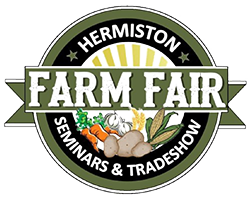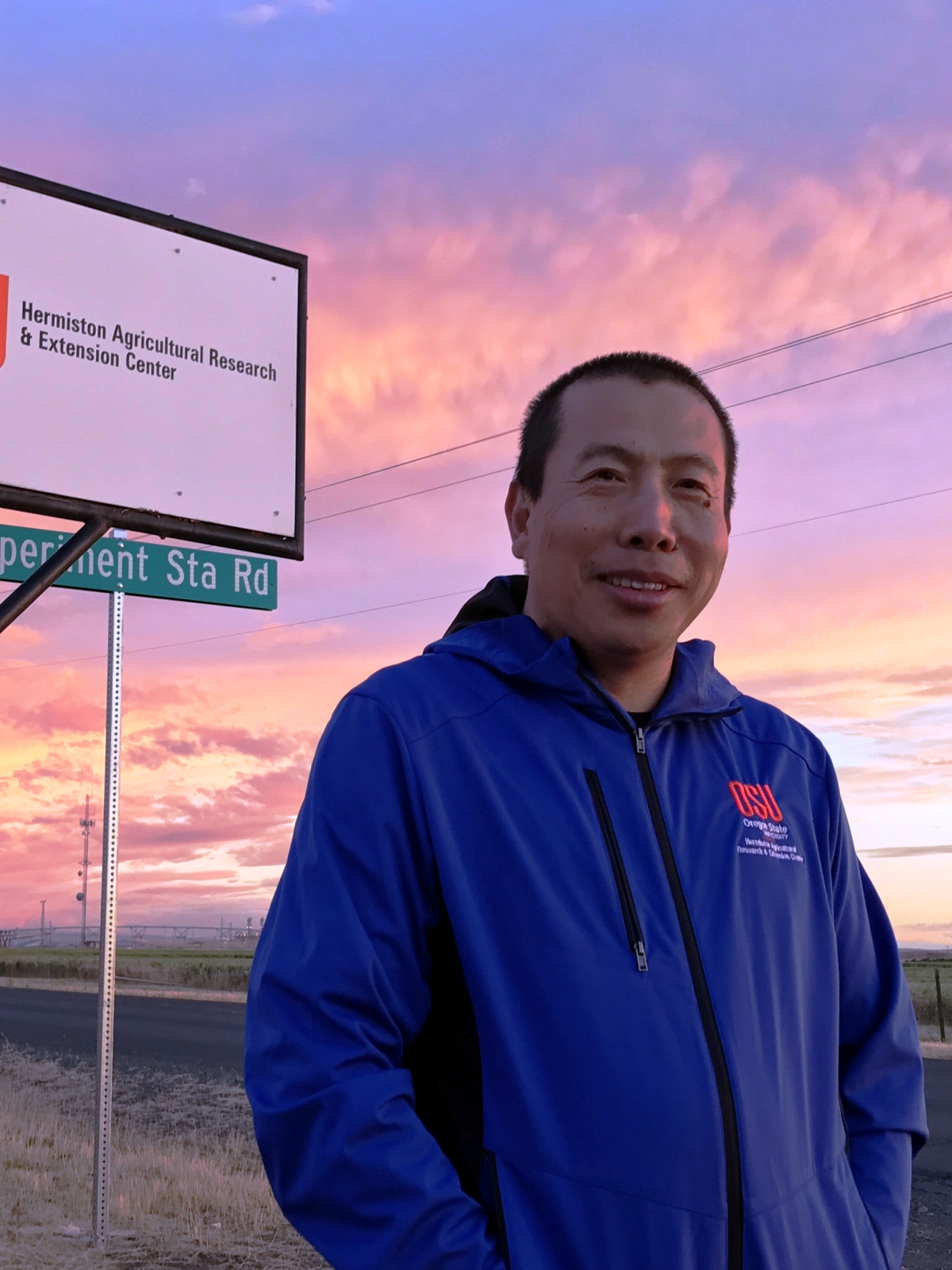
Ruijun Qin
Dr. Ruijun Qin is an Extension Agronomist at Oregon State University's Hermiston Agricultural Research & Extension Center and an Associate Professor in the Department of Crop and Soil Science at OSU. He plays a key role in organizing growers' meetings and field days in Northeastern Oregon and Southeastern Washington. His extension and research efforts focus on nutrient and water management, crop production, cropping systems, cover crops, organic amendments, environmental quality, and soil health. Previously, Dr. Qin worked at the San Joaquin Valley Agricultural Research Center of USDA-ARS and the University of California, Davis, where his research focused on soil fumigation, high-value crop production, plastic mulching, and water management. He earned his Ph.D. in Agronomy from the Swiss Federal Institute of Technology (ETH Zurich), where he studied root morphology, root distribution, crop production, tillage systems, and crop rotation in temperate regions. He also holds an MSc in Soil Science from the Chinese Academy of Agricultural Sciences, where he worked on projects related to soil reclamation, organic amendments, cropping systems, and long-term fertilization experiments in subtropical zones. Dr. Qin has published nearly 90 peer-reviewed papers and delivered more than 100 presentations at various professional conferences. As an extension specialist, he has organized over 30 growers' meetings and field days and delivered 95 non-credit presentations to more than 5,500 attendees at extension events. He is an Associate Editor of the Agronomy Journal and a guest editor for Agronomy MDPI.

Kenneth Frost
Ken Frost is an Associate Professor and Extension Plant Pathologist in the Department of Botany and Plant Pathology and located at the Hermiston Agricultural Research and Extension Center in Hermiston, Oregon. His research focuses on the ecology, epidemiology, and management of pathogens that cause diseases of irrigated vegetable crops. The primary goal of his research program is to develop practical and economically and environmentally compatible disease management strategies to minimize disease outbreaks and enhance the efficiency of vegetable crop production in Oregon. The research he conducts seeks to learn how variability in the environment affects pathogen growth, survival, and dispersal and influences disease intensity and pattern. Some of his recent studies have examined how different crop management practices change the soil microbiome and are associated with varying disease and yield outcomes. He is also interested to learn how pathogens and other members of the microbial community present in tare soils influence microbial community establishment on potato roots and plant health. He received his M.S. and Ph.D. in Plant Pathology from the University of Wisconsin – Madison.

Hannah Rivedal
Dr. Hannah Rivedal is a Research Plant Pathologist in the USDA-ARS Forage Seed and Cereal Research Unit in Corvallis, Oregon. She received her bachelor’s in Plant Pathology from the University of Wisconsin in 2013 and her Ph.D. in Plant Pathology from Oregon State University in 2019. Dr. Rivedal has over 10 years of plant pathology research experience in specialty crops, including 2 years as a plant disease diagnostician at HAREC. Her current research program is dedicated to understanding the biology, epidemiology, and impact of pathogens on crop and seed health within seed crop production systems, with a focus on turf, forage grasses and legumes grown for seed and hemp.

Vidyasagar (Sagar) Sathuvalli
Associate Professor, Potato Breeding
Ph.D. - 2010 - Oregon State University
M.S. - 2007 - Oregon State University
B.S. - 2002 - Tamil Nadu Agricultural University (TNAU), INDIA
My research focuses on Potato Breeding and Germplasm Improvement using traditional, molecular, and genomic tools. My program will aim at developing new potato cultivars with increased biotic and abiotic stress tolerance, nutrient efficiency and processing quality. Major: Horticulture (Plant Breeding and Genetics) Minor: Molecular and Cellular Biology; Major: Horticulture (Plant Breeding and Genetics) Minor: Botany and Plant Pathology; Project: Shoot tip culture in Banana for virus free plantlets

Andrew McGuire
Andrew McGuire is an Irrigated Cropping Systems Agronomist with Washington State University Extension. He works with farmers to address irrigated farming challenges in the Columbia Basin of Washington state.

Nick Andrews
Nick is a Professor of Practice in the new OSU Organic Agriculture Extension program. He focuses on ecological and organic vegetable production, cover crops, nutrient management, and pest management. In 2022 he started coordinating the Organic Agriculture program that includes pasture and forage, grains and pulses, tree fruit and nut, seeds and planting stock, and soil management specialists.

Udayakumar Sekaran
Udayakumar Sekaran is an Assistant Professor of Irrigation and Soil Fertility Management in the Department of Crop and Soil Science at the Malheur Experiment Station, Oregon State University, in Ontario, OR. Dr. Sekaran leads an irrigation and soil fertility management program for various crops, including onions, potatoes, and sugar beets. His research focuses on optimizing biofumigation cover crops as sustainable alternatives to chemical fumigation in these cropping systems. Additionally, he is developing low-cost wireless soil moisture monitoring tools to enhance irrigation efficiency.

Stewart Wuest
Stewart studies the effects of tillage and surface residue on the performance of soil in dryland cropping systems of the Pacific Northwest. His research is aimed at helping producers maximize water storage and minimize erosion. Past research determined how tillage, no-till, surface residue, and soil organic matter control water infiltration and runoff. His current research focus is on summer fallow practices for more reliable winter wheat establishment and yield. Efficient deep-water storage is a major target of Stewart’s current research.

Aaron Esser
Aaron Esser grew up on a farm near Genesee, Idaho, and he received his bachelor’s degree in Agricultural Economics and master’s degree in plant science at the University of Idaho. He is a Regional Extension Agronomist in the Lincoln-Adams Extension Area with Washington State University. He also serves as the Chair of the WSU Wilke Research and Extension Farm near Davenport. He has been with WSU for 26 years. His program focuses on assisting grower adoption of conservation farming systems, and more intensive crop rotations that improve soil health, productivity, and overall profitability.

Surendra Dara
Dr. Surendra Dara is an entomologist with more than 25 years of experience in IPM and microbial control. He worked on numerous invasive and endemic species of arthropods and plant pathogens. Dr. Dara has a strong research and extension background working on irrigation, nutrient, and pest management issues, biostimulants, and biological soil amendments to develop sustainable agricultural solutions. His research and extension covered commodities such as alfalfa, cassava, cotton, small fruits, and vegetables serving agricultural communities locally, regionally, and internationally.
Dr. Dara has authored/co-authored more than 400 scientific and extension articles, which include three co-edited books, four co-edited special issues of journals, 25 book chapters, and 60 peer-reviewed scientific articles. He has extensive international outreach experience training farmers in Bangladesh, Guatemala, Haiti, Jamaica, Kosovo, Moldova, Mozambique, Myanmar, and Zimbabwe. He received multiple national awards for his internationally recognized research and extension work. He holds editorial responsibilities for multiple journals and offices in the Society for Invertebrate Pathology and the Entomological Society of America.

Max Feldman
Dr. Max Feldman is a Research Geneticist with the USDA-ARS focused on potato germplasm enhancement. A majority of this work is focused on discovery and introgression of disease resistance loci and other beneficial alleles from wild or primitive germplasm and the development of marketable potato varieties. Dr. Feldman possesses over 20 years of agricultural research experience primarily focused on using forward and reverse genetics to better understand the mechanisms underlying plant traits. Much of this work has focused on development of improved measurement strategies (image analysis, analytical chemistry) in combination with high-throughput genotyping and bioinformatic analysis to extract knowledge from large public datasets. Our primary objective is to utilize the power of quantitative genetics to breed more profitable and sustainable potato varieties for our stakeholders in the Pacific Northwest and farmers around the globe.

Pamela J.S. Hutchinson
Pam worked as an Agronomist for Land O’ Lakes in eastern MN for 4 yrs (1981 to 1985) before going back to school at South Dakota State to get an M.S. in Weed Science and a minor in Ag Economics (1987). Of course she was in the Pride of Dakotas Marching Band and percussion groups at SDSU.
On to the University of Nebraska Lincoln for her Ph.D. in Weed Science (1991) and meeting her future husband, Tom Salaiz. After a Post Doc with American Cyanamid in Iowa, she married Tom and they moved to Idaho where she held a Field Agriculturist position with American Cyanamid (1992 to 1999). Her territory was comprised of Idaho, Montana, northern Utah, and eastern Oregon and Washington. Of course, when possible, and not on the road, Pam participated in musical groups.
Pam took the position as Weed Scientist for Potato Cropping Systems with the University of Idaho at the Aberdeen R&E Center in 1999 and has been there for 25 years. She has a 65% Outreach and Extension; 28% Research; 2% Teaching and Advising appointment. Pam’s position involves weed management in potato cropping systems including weed competition and crop interference, potato variety herbicide tolerance, developing and recommending herbicide tank mixtures with overlapping Site of Action for weed control in potatoes, effect of weeds on diseases, insects, and nematodes, and weed management in trap crops. She is also working with new rotation crops – quinoa, culinary mustards, and industrial hemp. She is also Senior Editor, Cover Photo, American Journal of Potato Research
Pam and Tom reside in the country close to Aberdeen, hang out with Pam’s mom, Charlotte, enjoy their dogs and cats, occasionally downhill ski, and are happy participating in community activities. Pam plays percussion in the Idaho State Civic Symphony, Pocatello Municipal Summer Band, and the Idaho State University Civic Concert Band. Tom attends most concerts.

Gengping Zhu
Dr. Gengping Zhu is an Entomologist at Washington State University Department of Entomology. His research focuses on insect niche and distribution modeling, and their applications in insect biodiversity and conservation. He employs statistical analyses, mathematical modeling, and field surveys to examine fundamental and applied questions in regional and global invasive insect management, as well as functional insect biodiversity and conservation. Dr. Zhu has extensive experience in ecological models (i.e., habitat suitability model and phenology model). He is proficient in ecological niche modeling for invasion risk assessments and has worked in this field for over a decade. Dr. Zhu has developed habitat suitability models for more than 20 invasive insect species (e.g., brown marmorated stink bug, codling moth, spotted wing drosophila, Northern giant hornet, Japanese beetle, emerald ash borer). Dr. Zhu obtained his PhD from Nankai University (China) and received training in spatial analysis and mathematical modeling from the University of Kansas (Lawrence) and University of Tennessee (Knoxville).
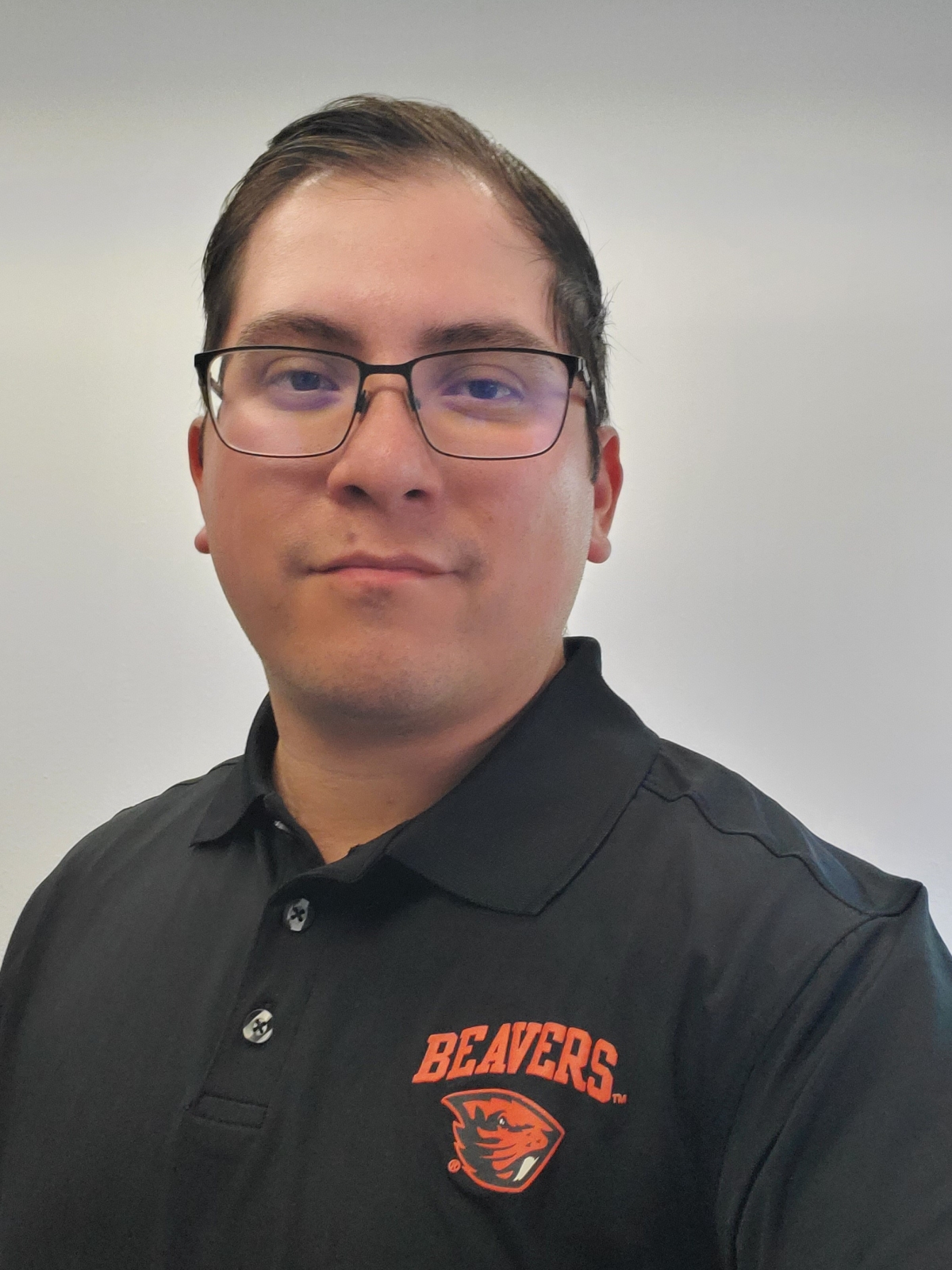
Aaron Becerra-Alvarez
Dr. Becerra-Alvarez is the weed science extension specialist for vegetable and specialty seed crops of Oregon. His research and extension program focuses on understanding the plant-management-environment interactions and how we can use that knowledge to develop integrated weed management plans in the field. He works with both conventional and organic vegetable producers. His active research involves exploring new technology for weed control and optimizing current available options in processed and fresh market vegetables and vegetables grown for seed. His extension program aims to improve weed science and integrated pest management knowledge among the workforces. He serves as the editor for the Pacific Northwest Weed Handbook. Dr. Becerra-Alvarez received his PhD at the University of California - Davis conducting weed science research in water-seeded rice.
Francesco Di Gioia
Dr. Di Gioia is a vegetable specialist with 50% research and 50% extension appointment. The primary goal of his integrated research and extension program is improving the sustainability of vegetable crops and their nutritional quality. Working across different crops and growing systems (open field, protected, and controlled environment) and methods (conventional, organic, soil-based and soilless systems) his research focused on developing and optimizing solutions aimed at improving crop resource use efficiency (irrigation, fertilization, energy), reducing the use of synthetic inputs, and improving the nutritional value of vegetable crops. Among other things, over the past 10 years he has been working on Anaerobic Soil Disinfestation a biological solution alternative to the use of chemical fumigants for the management of soilborne pest and pathogens.
He received his B.S. and M.S. in Agricultural Science and Technology and his Ph.D. in Mediterranean Agronomy at the University of Bari in Italy. Before joining Penn State in 2018, he was a postdoc at the University of Bari and the University of Florida.
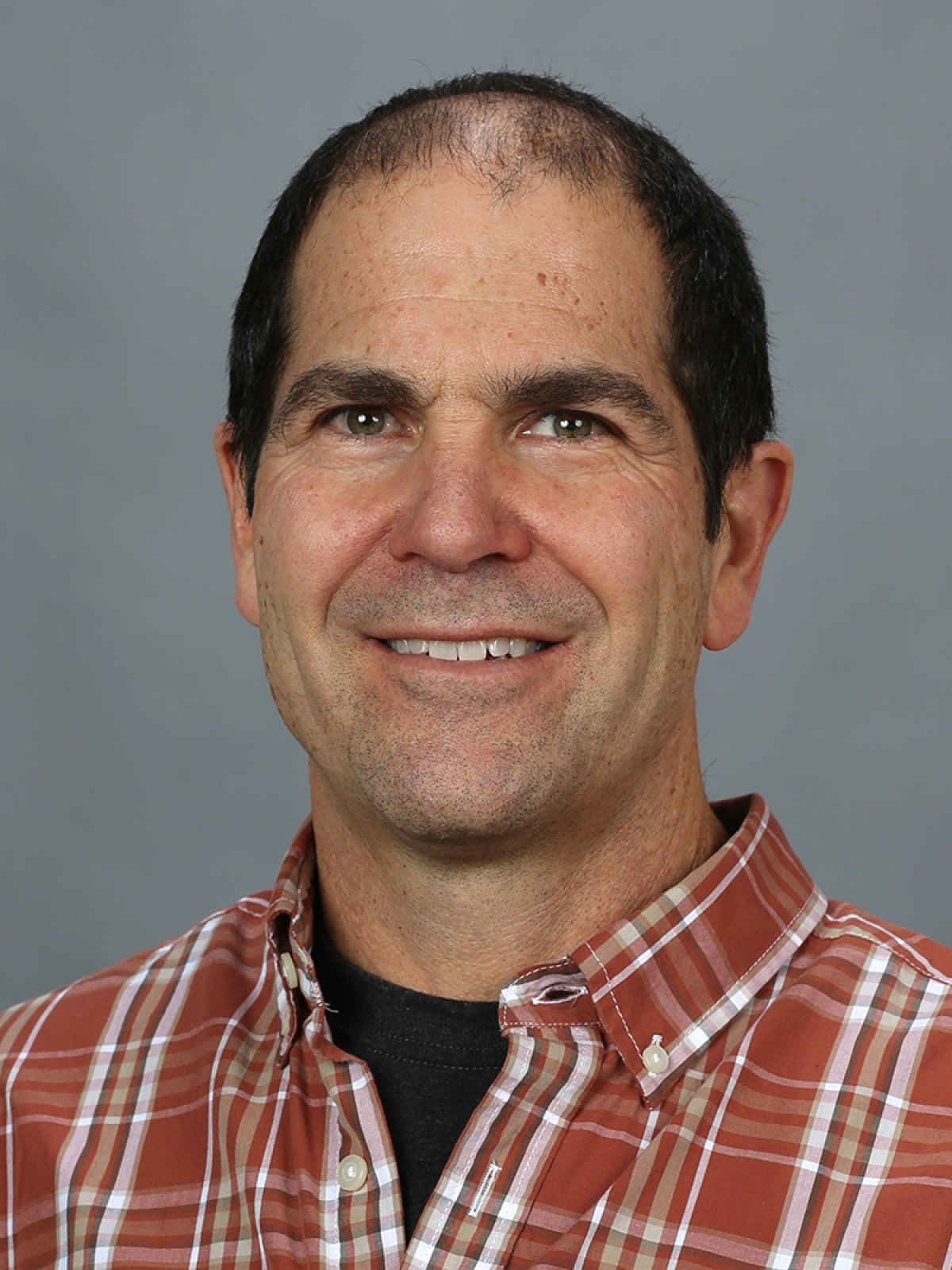
Drew Lyon
Drew Lyon is Professor and Endowed Chair Small Grains Extension and Research, Weed Science at Washington State University in Pullman. His Extension and Research Program focuses on integrated weed management in dryland small grain production systems. Prior to his arrival at WSU in 2012, Drew served 22 years as the Extension Dryland Cropping Systems Specialist at the University of Nebraska-Lincoln Panhandle Research and Extension Center in Scottsbluff. He is a Fellow of the American Society of Agronomy, Crop Science Society of America, and the Western Society of Weed Science. He received his B.S. in Agriculture from the University of Illinois at Urbana-Champaign and his M.S. and Ph.D. in Agronomy/Weed Science from the University of Nebraska-Lincoln.
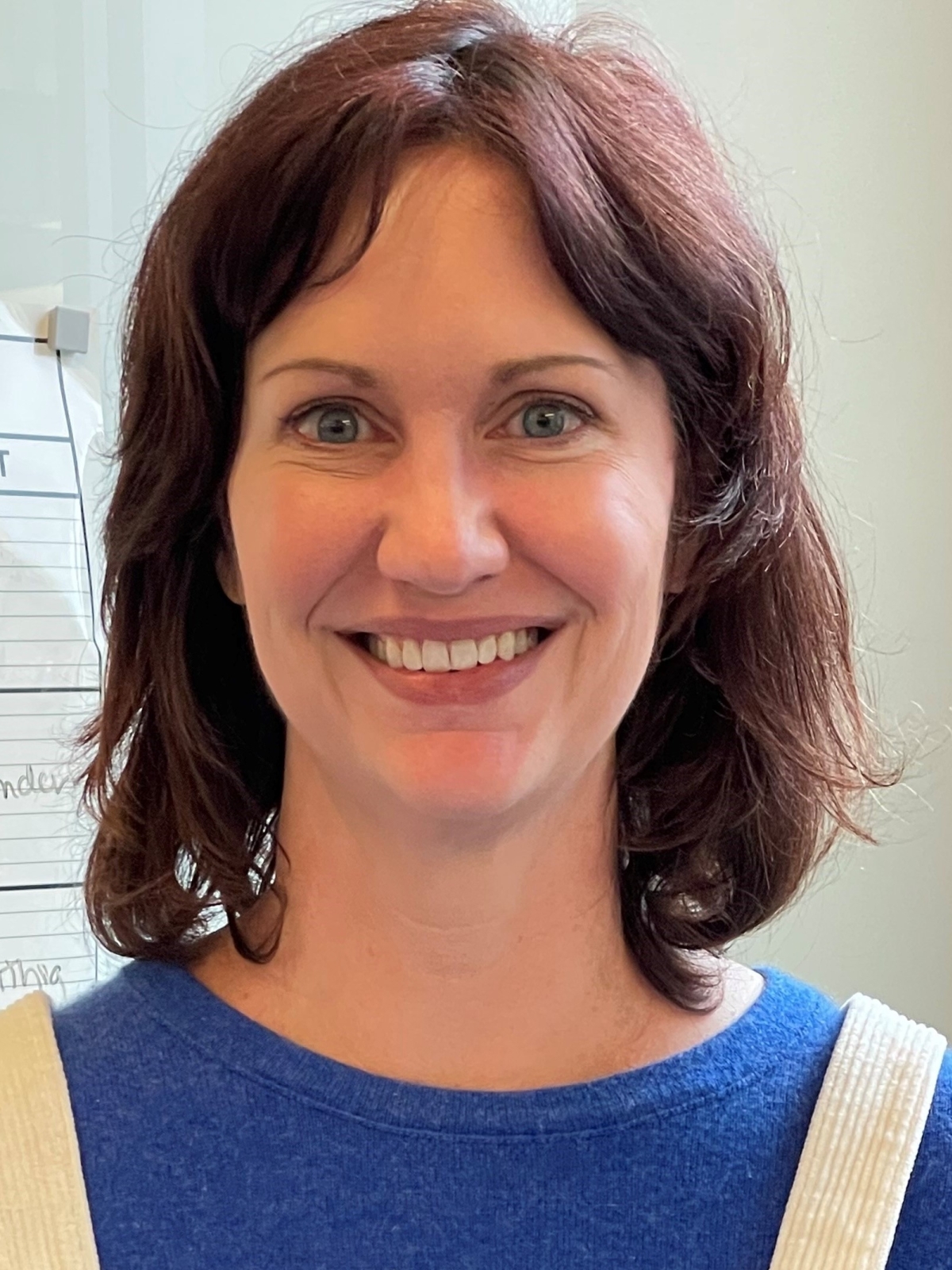
Cynthia Gleason
Cynthia Gleason is an assistant professor at Washington State University in the Department of Plant Pathology working in nematology. She obtained her PhD from UC Davis and then worked at both the John Innes and CSIRO before moving to Georg August University (Germany) as a Jr. Professor in 2011. She moved to Pullman in 2016 to continue her research root-knot nematodes, particularly focusing on the root-knot nematode Meloidogyne chitwoodi, which is a significant threat to potato farmers in the region. Her lab uses molecular and biochemical approaches to understand how root-knot nematodes infect roots and how plants respond to root invasions. Her research program also looks at ways to improve nematode detection and diagnostics.
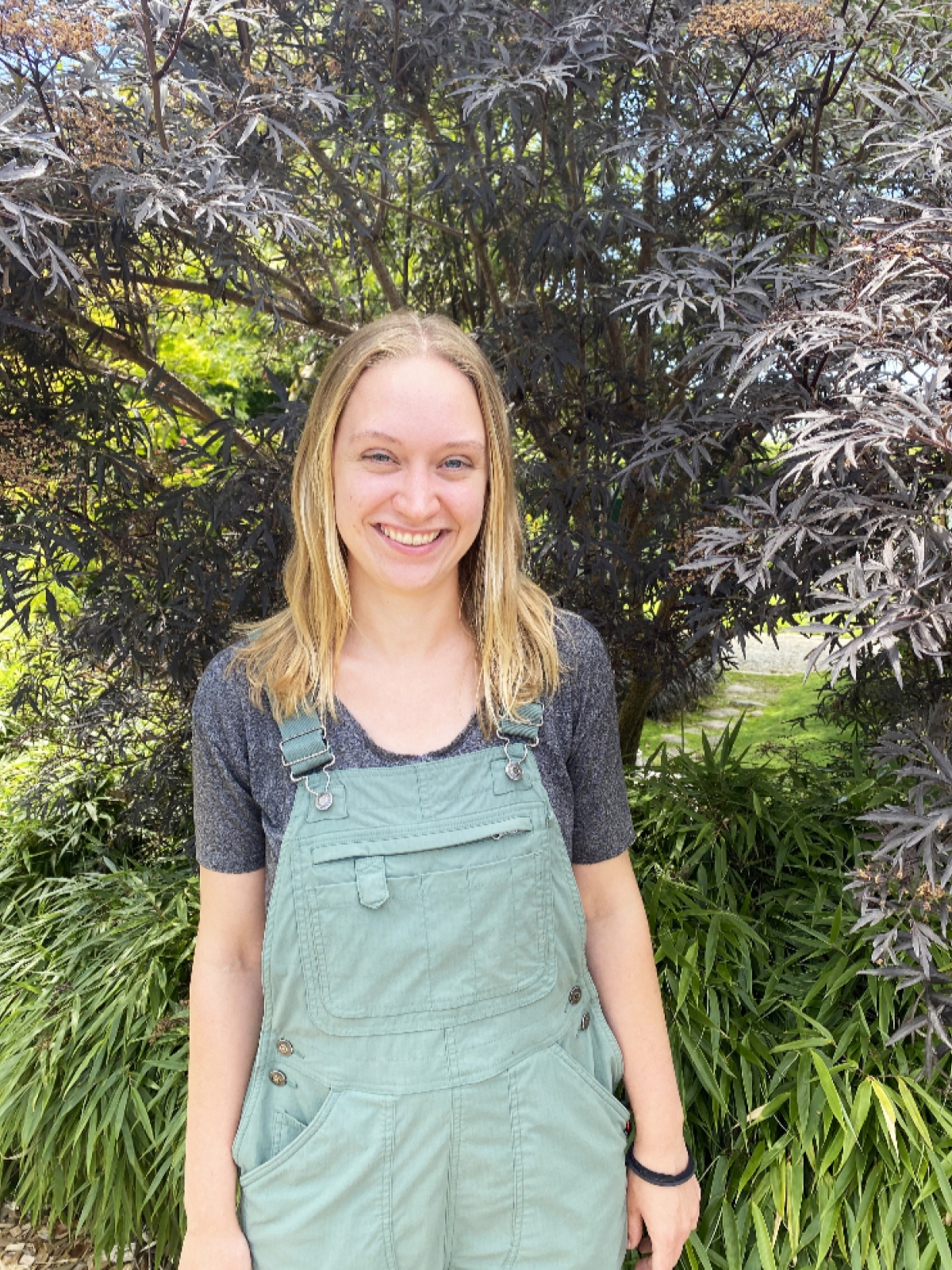
Laura Schulz
Laura Schulz is a PhD student in Horticulture based at Washington State University's Northwestern Washington Research and Extension Center in Mount Vernon. Her research is advised by Dr. Carol Miles and aims to introduce sweetpotato as a new crop to western Washington.
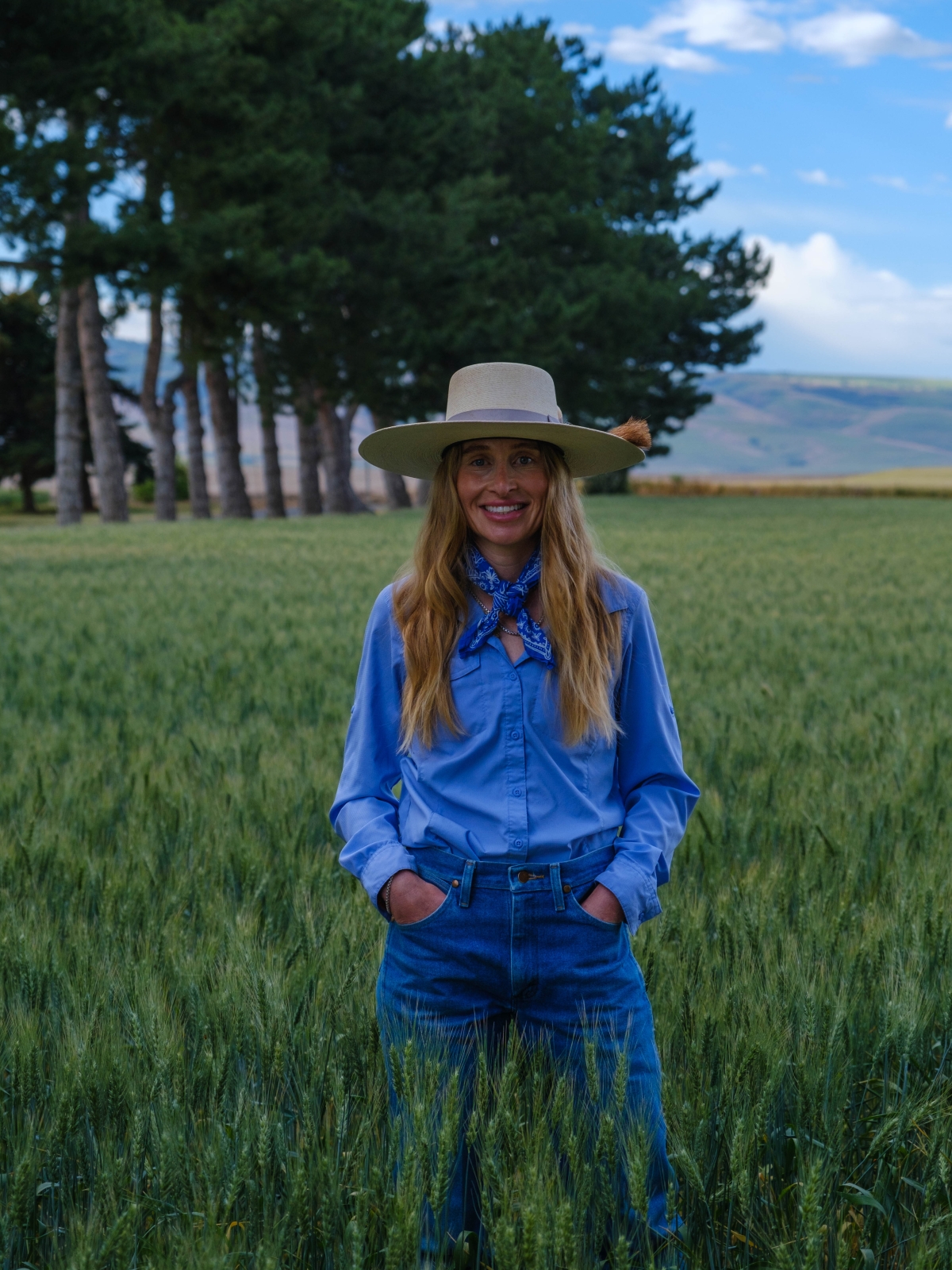
Christina Hagerty
Christina is an Associate Professor of plant pathology at Oregon State University’s Columbia Basin Agricultural Research Center. She is the first female chair of the National Wheat Improvement Committee, and the Oregon Wheat Faculty Scholar.
Rodney Cooper
Dr. Cooper a USDA-ARS Research Entomologist with responsibilities for developing new methods for management of insect pests in vegetable crops and temperate tree fruits. His research interests are broad and multifaceted, spanning aspects of ecology, biological control, molecular biology, and plant-insect associations. His research requires complex, multidisciplinary, and often novel approaches. Dr. Cooper has authored or co-authored 108 publications in refereed journals. Since 2012, his primary focus has been on biology and management of insect vectors of bacterial plant pathogens, especially psyllids and leafhoppers. He developed methods for molecular gut content analysis to identify the dietary history of phloem-feeding insect vectors and uses that information to infer the landscape-level movements of the insects prior to their capture. Molecular gut content analysis allows researchers to identify non-crop sources of insect pests arriving in crop fields or orchards, and to identify likely non-crop hosts from which insect vectors acquire plant pathogens. This method has gained considerable interest among researchers and has contributed to 20 domestic and 6 international collaborative projects on a landscape ecology of a diversity of insect pests on a wide-range of unrelated crop hosts.
Kristie Buckland
Kristie Buckland is the Vegetable and Specialty Seed Specialist at the North Willamette Research and Extension Center. Kristie earned a B.S. in Aeronautical Engineering from the U.S. Air Force Academy. Following a ten year career in the Air Force, she completed her M.S. and Ph.D. at Utah State University. The Vegetable and Specialty seed program strives to identify management strategies to increase farm sustainability using a systems approach. Kristie has worked for 11 years in both conventional and organic vegetable and seed production systems. She focuses on integrated management strategies such as inter-cropping, trap cropping, crop rotations, as well as new crop options and adopting new technologies.

Megan Baker
Megan Baker is a graduate student pursuing her Ph.D in Plant Science at Utah State University in Logan, UT. She received her Agribusiness B.S. in 2022 and her Plant Science M.S. in 2023 from Utah State University. Her research and extension activities are focused on nutrient management, soil fertility, and soil amendments in various field crops (alfalfa, small grains, corn, and grasses). Her master’s research evaluated soil testing labs and their fertilizer recommendations based on differences in soil test results, forage yield and quality, and economics of fertilizer recommendation philosophies. She is currently conducting on-farm trials across the state of Utah to evaluate sulfur fertilizer response, soil amendment impacts on crops, and effectiveness of fertilizer products.

Curtis Adams
Curtis Adams is a Research Crop Physiologist with the USDA-ARS in Pendleton, OR, where he has been working for about three years. Dr. Adams’s research ranges within the subdisciplines of crop science from cropping systems and agronomy to crop ecology and physiology. Some current research focuses include: investigation of wheat traits that result in greater yield, quality, and resilience to stress; evaluating multiple aspects of newly developed food-grade winter field peas; assessing interactions between wheat variety, production environment, and wheat nutrition; and sustainable cropping system intensification.
Hermiston Farm Fair 2024
